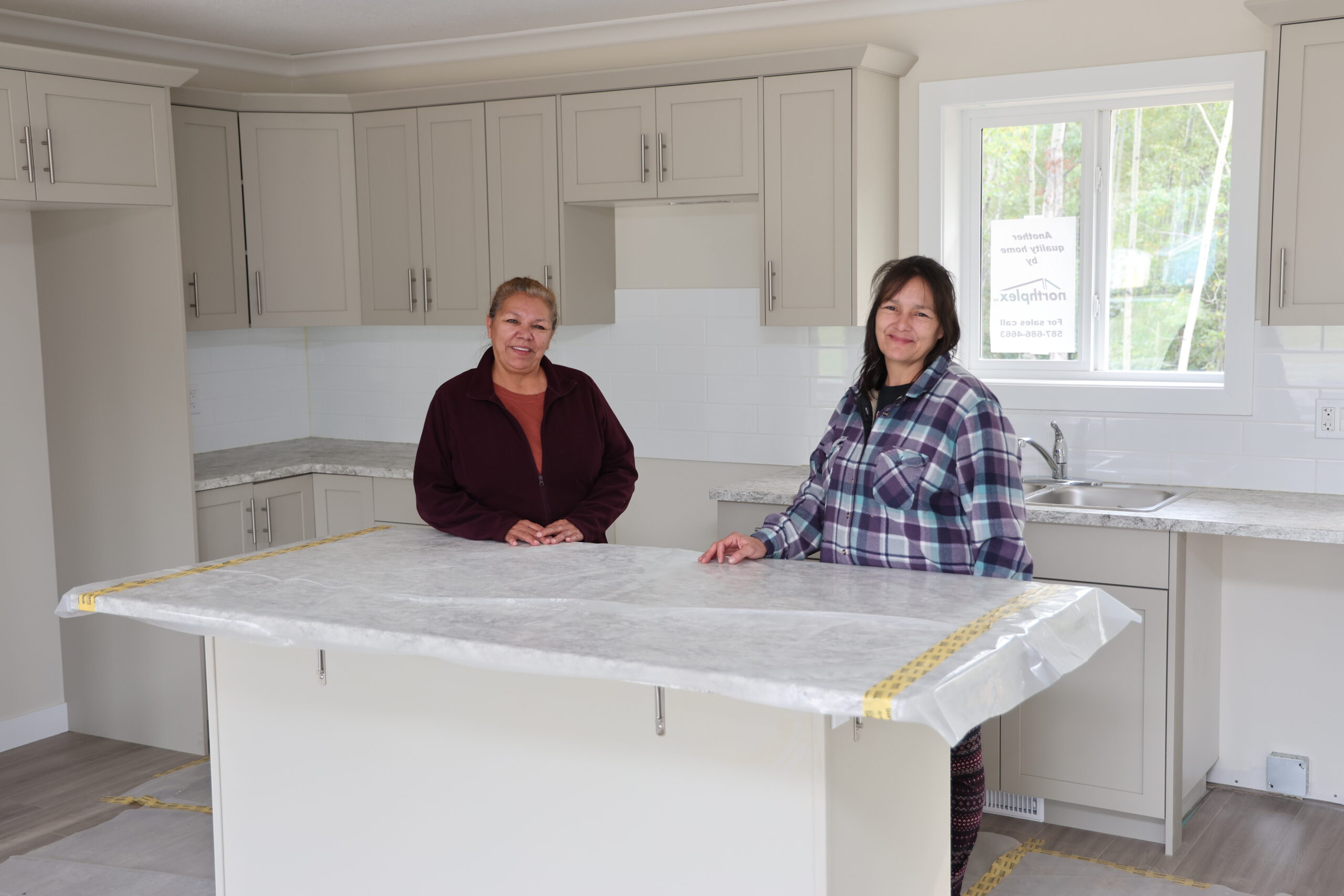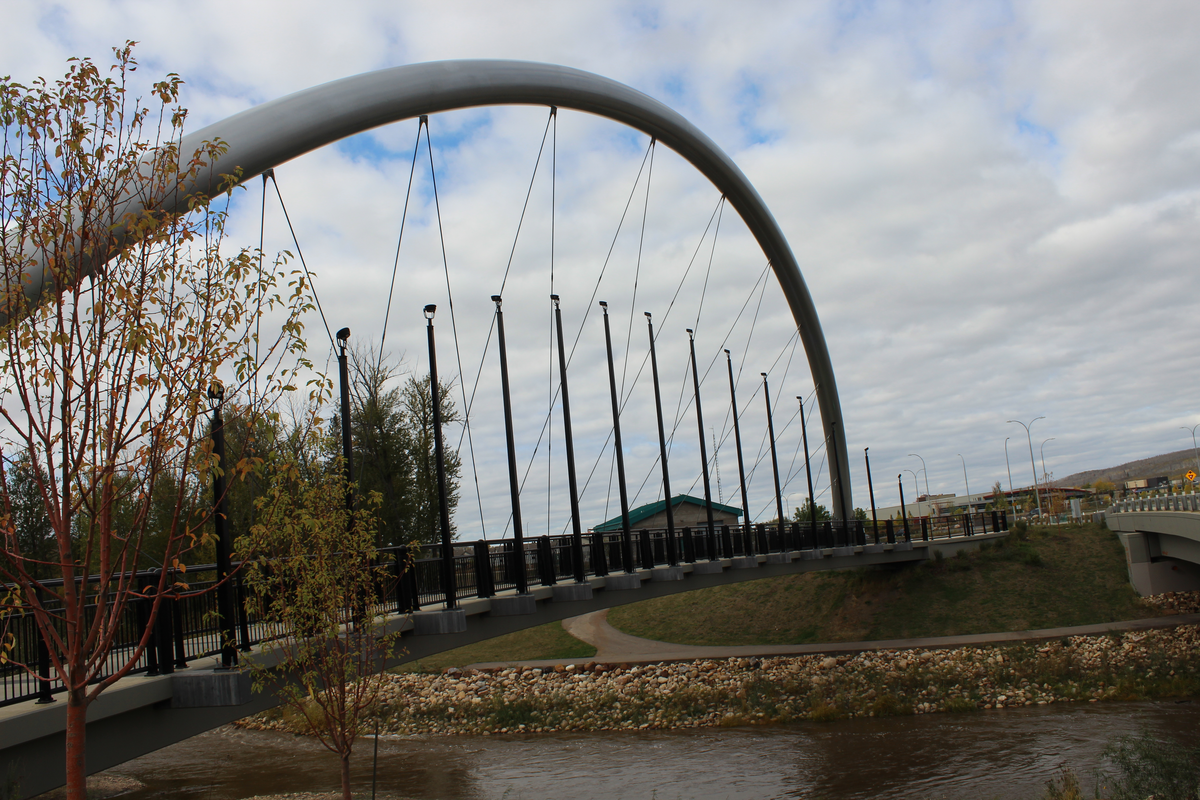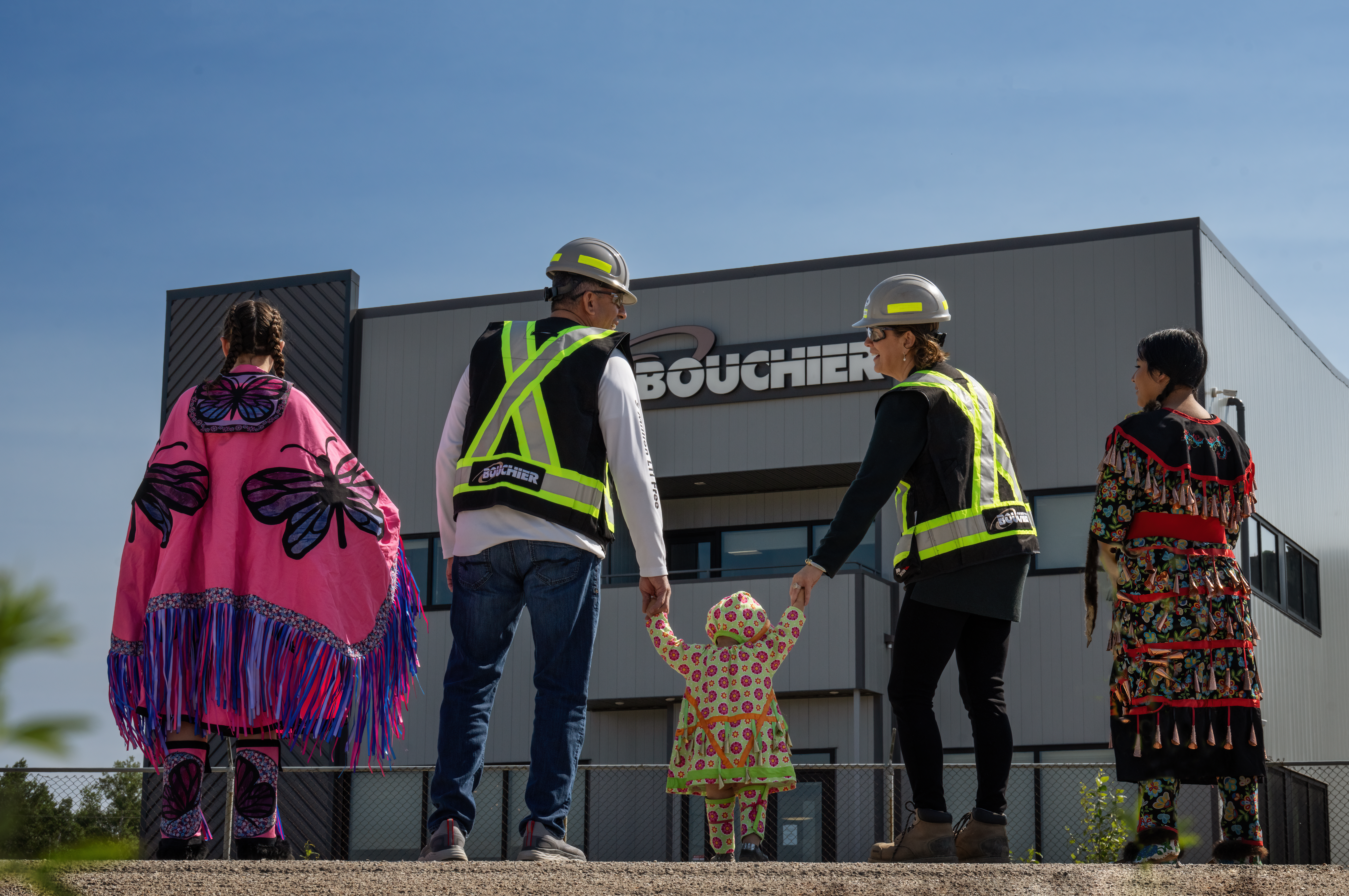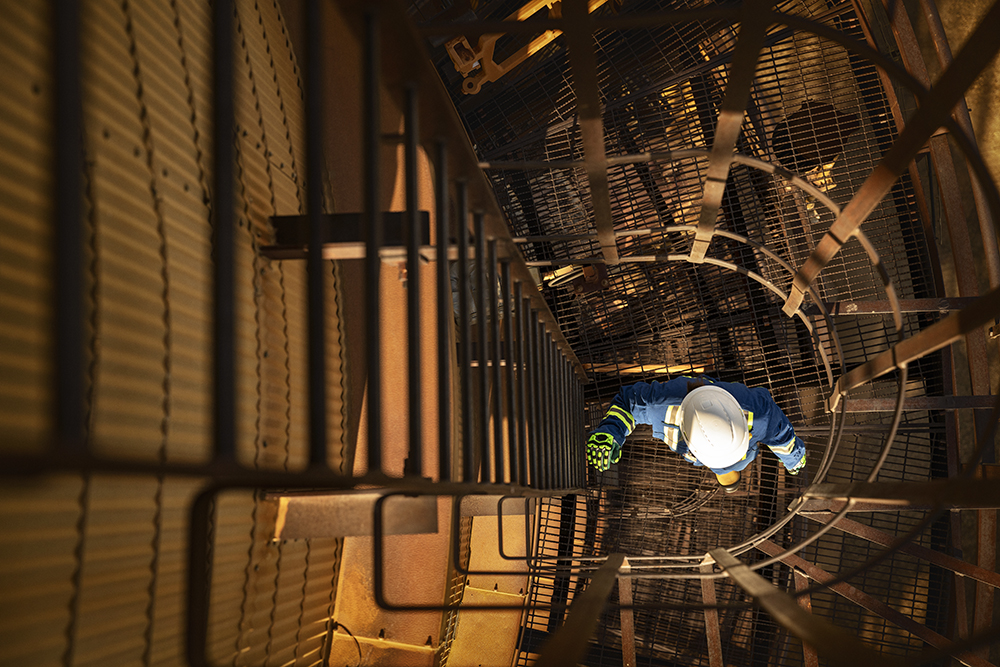Housing program keeps Indigenous families together and in the community
November 28, 2024

For the past eight winters, Darlene Richards bundled up warmly, slipped on winter boots and trudged through the snow dragging a toboggan to gather wood. This is how she fueled her stove that provided heat to her modified camper where she lived starting in 2016.
“It was very physical to live like that all the time,” says the 55-year-old resident of Conklin, a Métis community about 350 kilometres northeast of Edmonton. “But that camper was my home. I had cords running up to the house for power. There was a barrel of water that a truck came by and filled up. I cooked on my barbecue, even in the winter. I used an outhouse when I needed to go to the bathroom.”
Darlene’s situation wasn’t unique. Her sister Grace Richards lived inside a modified camper about 400 metres away. “I was in that spot for eight years. I purchased the camper as something temporary, maybe two years max,” says Grace. “I used to get up in the morning, haul water from my barrel. The electricity wasn’t sufficient for a toaster, coffee maker or microwave so it was just instant coffee in the morning. I would warm up water on the stove for daily washing or cleaning because I didn’t have running water.”
But that all changed this November, when Darlene, Grace and 21 other families of the Conklin Métis Local 193 began moving into new prefabricated houses in the community.
The homes are part of a $50-million initiative from Cenovus Energy to build up to 200 homes in six First Nations and Métis communities near the company’s Foster Creek and Christina Lake oil sands operations.
“Fundamentally, Cenovus wants to be a good neighbour,” says Dustin Meek, manager for Indigenous Business Development and Housing. “We heard from community members that housing is a big need so we’ve worked collaboratively with these communities to address that.”
The program was instigated by Cenovus executive board chair Alex Pourbaix after visiting the Beaver Lake Cree Nation, Chard Métis Nation, Chipewyan Prairie Dene First Nation, Cold Lake First Nation, Conklin and Heart Lake First Nation several years ago.
“The housing conditions in Indigenous communities are not understood until you see it first hand. Alex, who was our CEO at the time, was quite concerned about what he saw and spoke to leaders in those communities about it,” Dustin says. “Those conversations inspired the Cenovus Indigenous Housing Initiative.”
Announced in January 2020, the program has funded the construction of 121 homes through the end of 2023, including 17 in Conklin. The construction of 40 more houses was funded this year by Cenovus, including 6 more for Conklin. And Valerie Quintal, president of Conklin Métis Local 193, sees the program filling a huge gap in her community.
“I grew up in Conklin and I love it here but housing has always been a challenge,” says Valerie. “We had some houses built through government programs in the 1980s but that was more than 40 years ago. And since then, we have lost people because of substandard housing. There is overcrowding, especially as children get older and have their own families so they have had to leave Conklin and move to Fort McMurray, Lac La Biche and Edmonton.”
Cenovus has worked with the community, who created a new subdivision with services to locate the houses, which are pre-fabricated in Lloydminister and Edmonton and trucked to the community.
“They worked with us to find the best solution and the community has identified the families with the greatest need. It is quite emotional to see the houses coming into the community and realizing the difference they will make to those families,” says Valerie. “Cenovus, to me, is a godsend to Conklin. Cenovus noticed a dire need in our community and delivered. These houses will keep families together and keep them here at home in their community.”
Darlene is glad to be able to reacquaint herself with simple comforts that she once enjoyed while living in Fort McMurray and operating heavy equipment before the pull of home saw her return to Conklin.
“I enjoy just flicking on the light switch, turning on the tap for water. Doing laundry in my own house. I don’t have to pack my laundry anywhere,” says Darlene. “My biggest hope is people younger than me won’t have to live like I used to for as long as I did.”
Grace, meanwhile, is looking forward to what’s ahead in her new home. “Making a Christmas dinner in December. I haven’t cooked a Christmas dinner for 10 years. But even just the little everyday things, like taking a shower or turning on a light switch or turning on the furnace. I took those for granted before moving back to Conklin.


